LGBTQ High School Athletes On Being Out in Sports
Recipients of this year's Team DC College Scholarships share what sports has meant to them and weigh in on transgender participation.

“I love pushing myself to be better,” says Nwaamaka Agwu. “Whether it be trying a new play in soccer with my teammates or striving for a new personal best in track, I love trying to better myself individually or in a team setting.”
The 17-year-old senior at Springbrook High School in Silver Spring, Maryland, is one of nine recipients of this year’s Team DC College Scholarships for student athletes. The $2,500 awards are presented annually to LGBTQ student-athletes across the metropolitan D.C. area.
This year’s awardees, all seniors, include Agwu, Natalia “Nat” Alatis, Emilia Benitez-Pergola, James Hughes, Catherine “Rin” Kelley, Nadia Lytle, Shanti Osborne, Katelynne Robertson, and Jay Young. The honors will be presented at the organization’s annual Night of Champions Gala on Saturday, April 5, starting at 6 p.m. at the Hilton National Mall/Wharf.
“Their rigorous coursework workloads, tireless hours of community service, and additional extracurricular activities only begin to paint the picture of their ongoing
and heartfelt journey as out LGBTQ+ athletes through school,” says Charles Roth, the Team DC Scholarship Committee Chair and a board member of the organization, which serves as an umbrella for various LGBTQ sports clubs across the region.
“These scholarships help set young people on a path to future LGBTQ+ leadership,” adds Team DC Interim Director Patrick Woods.
“The Scholarship Program is the heart of our mission,” says Team DC President Miguel Ayala. “We are inspired by their incredible journeys, each one unique, yet bound by a shared experience of perseverance, growth, and self-discovery. No two high schools are the same, and no two students walk the same path, but one truth remains constant — the intersection of sports and education strengthens their coming-out experience, helping them build confidence, resilience, and a deep sense of pride in who they are.”
That pride is an essential ingredient, and arguably more important than ever, in these days of the Trump administration’s attacks on public expressions of LGBTQ identity, and in particular, its viciously cruel, publicly demeaning rhetoric toward transgender athletes. Even more crucially, the Team DC scholarship recipients, who span the LGBTQ spectrum, find tremendous compassion and camaraderie in their fellow teammates and coaches. It’s the very antithesis of the hateful false narrative the administration is trying so desperately to push.
“I felt really welcomed by my coaches,” says volleyball player Katelynne Robertson, an 18-year-old senior at Herndon High School in Virginia. “My head varsity coach was the first one I told when I changed my pronouns to they/them. She was so accepting and made sure that I knew she wouldn’t intentionally misgender me.”
“With swimming being so visibly binary, I’ve found it hard to feel seen, given I am wearing the same swimsuit as all the girls,” adds 18-year-old Jay Young, a senior at H-B Woodlawn Secondary Program in Arlington. “Luckily, I’ve found people who embrace me and support me as queer and trans.”
The student athletes took time out of their busy schedules to engage with a Metro Weekly questionnaire about their experiences as out LGBTQ individuals in high school sports, their opinionss on Trump’s transgender sports ban, and what Team DC’s award means to them personally. Their responses are powerful, profound, and, yes, brimming with pride.
How easy or hard was it for you to be out in your high school?
Nwaamaka Agwu, 17, Springbrook High School, Silver Spring, Md., Soccer, Track & Field, Omnisexual: Being out in high school wasn’t too difficult for me, though I think that mostly had to do with the fact that I was comfortable with being out and that the people around me weren’t too against my sexual orientation.
Nat Alatis, 18, Hayfield Secondary School, Alexandria, Va., Marching Band, Transgender: It was pretty easy for me to be out at my school. The majority of the student population is pretty inclusive, and there are a lot of teachers and faculty members at Hayfield who are strong allies.
A lot has been done to accommodate LGBTQ+ students and make them more comfortable coming to school. My teachers call me by my preferred name and pronouns without issues, and my peers are the same way. I’m not afraid to be unapologetically myself because I know that I’ll be supported no matter what I identify as.
Emilia Benitez-Pergola, 17, Benjamin Banneker Academic High School, Washington, D.C., Soccer, Cross Country, Track & Field, Non-binary: For me, it was easy to be out in school. I have been able to participate in my school’s Pride Club since my freshman year. The club gave me queer community that I could rely on no matter what. They were able to provide me support to come out to my teachers. Now, I am the president of the club and hope that I am continuing to foster that community.
James Hughes, 18, BASIS DC, Washington, D.C., Track & Field, Cross Country, Gay: It was fairly easy for me — I go to a very supporting school. There are many LGBTQ+ staff, teachers, and students, so I didn’t feel too out of place. Aside from the occasional joke from insensitive teenage boys, I never faced any problems.
Rin Kelley, 18, Chantilly High School, Fairfax, Va., Softball and Baseball, Queer: It was relatively easy for me to be out in my high school. I think most people take one look at me and know I am queer. While I have met quite a few people who aren’t supportive of the community, I have had very few bad experiences with others because of my queerness.
Shanti Osborne, 17, H.D. Woodson, Washington, D.C., Basketball, Flag Football, Softball, Lesbian: Being out in high school has been a journey of confidence and self-acceptance. I dress in a way that feels comfortable to me, and while some people might have questions or assumptions, I’ve never let that shake who I am. I’ve built strong relationships with my classmates, especially those with special needs, and I know they see me for the person I am, not just how I look or dress.
There have been moments where I’ve had to explain myself or correct people’s assumptions, but I handle it the same way I approach everything else — with confidence and determination. I know who I am, and the people who truly matter respect me for that. Whether it’s on the football field, in the Special Olympics, or in the classroom, I show up as myself every day, and that’s what really counts.
Katelynne Robertson, 18, Herndon High School, Herndon, Va., Volleyball, Lesbian: It was sort of in-between. While a lot of people didn’t care, I would get a lot of weird questions and some judgments regarding my sexuality and gender identity.
Jay Young, 18, H-B Woodlawn Secondary Program, Arlington, Va., Swimming, Genderqueer/Non-binary/Pansexual: Being out at my high school was one of the easier areas to be out in my life. I go to a very queer-affirming school, with many staff who are openly gay, so I felt supported in that area. Of course, being out almost anywhere has its challenges, but my school was generally affirming.
Have you personally experienced homophobia or transphobia in sports? If so, what happened, and how did you deal with it?
Nat Alatis: Yes, I’ve experienced transphobia in my sport. At the time, the person was my friend, and he called me slurs and insulted me behind my back. He called me a “fake boy” and a “wannabe man.” When I found out about it, I turned to my support system for help. My friends were there to remind me that my identity was valid, and eventually, I was able to separate myself from him and his toxicity.
I’ve also experienced a few isolated incidents of intentional misgendering, but I was able to go to my director for help, and the issue resolved itself with time. I’ve learned from these experiences how to be stubborn about standing up for myself and defending my identity.
Emilia Benitez-Pergola: I have not. Or if I have, I cannot remember. I tend to not care much what others think of me.
James Hughes: No, I have not.
Rin Kelley: I have been lucky enough to not face any homophobia or transphobia directed at me in athletic environments. That’s not to say I have never heard gay jokes or insults on the field, but for the most part, I steer clear of those people.
Shanti Osborne: I wouldn’t say I’ve personally experienced outright homophobia or transphobia in sports, but I know that the way I present myself might make some people curious or even judgmental.
I’ve always focused on proving myself through my work — whether it’s managing the football team, taking stats, or playing basketball and flag football. If anyone has had a problem with who I am, they’ve kept it to themselves, or I’ve handled it by staying confident and not letting it affect my performance.
Jay Young: I’ve not experienced interpersonal homophobia or transphobia in swimming, but I have faced barriers in participating due to being trans.
Swimming is a very binary sport, making it inherently hard to be outside the binary in it. Thus, the space isn’t really built with trans folks in mind. My main struggle has been finding bathrooms I can use at meets. The gender neutral bathrooms are often reserved for adult volunteers, if there are any in the first place.
It’s one of those extra burdens I have to navigate, planning ahead to change into my tech suit — a racing swimsuit, very tight and uncomfortable for long periods — before I get to the pool if I don’t know if I’ll have access to a bathroom. Over time, I’ve gotten better at advocating for access to bathrooms, but it’s still something I have to think about every time I go to a different pool or have a long swim meet.
How welcomed did you feel by your coaches and teammates?
Nwaamaka Agwu: My teammates and coaches made me feel incredibly welcome, mostly because they never treated me any differently from any other person on the team.
Nat Alatis: I’ve always felt very welcomed by my directors and my teammates, both before and after I socially transitioned. When I introduced myself to my teammates and director with my new name and pronouns during my second year in marching band, everyone was quick to correct and adjust themselves to my new preferences.
It was never a big deal, and everyone still treated me the same as if nothing had changed. I especially felt welcomed in my team after a showcase performance where the girls and the guys from the ensemble took separate photos, and the guys invited me into their photo as if I was just another one of them. These small moments meant a lot to me, and my team’s continued support is something that makes me more inclined to keep returning to marching band.
Emilia Benitez-Pergola: My coaches and teammates have always made me feel welcome. Since I ran with girls, my cross country coach, Mr. Verner, would make sure I was comfortable in my uniform and gave me a looser-fitting one to wear.
James Hughes: I feel extremely welcomed by my teammates and coaches. I’d say I’m friends with most of them. The only times where I have a problem is when I hear them making semi-homophobic jokes, but they’ve never been directed at me, so I’m not too bothered by it.
Rin Kelley: I feel very welcomed on all of the teams I currently participate in. My girls’ baseball team and all of my softball teams are very inclusive of everyone.
Shanti Osborne: For the most part, I’ve felt welcome. My role on the football team started small, but over time, I proved my value, and now I handle stats and logistics. That level of trust and responsibility shows that my coaches and teammates respect me. I think once people see my work ethic, they care more about that than anything else.
Katelynne Robertson: I felt really welcomed by my coaches. My head varsity coach was the first one I told when I changed my pronouns to they/them. She was so accepting and made sure that I knew she wouldn’t intentionally misgender me.
My junior varsity and assistant varsity coaches were also super welcoming and always made sure they corrected themselves. At the start of my senior year, my head varsity coach asked to speak with me, and she offered to help me be more open about my pronouns with the rest of the team because she wanted me to be comfortable. I really appreciate how welcoming they have been, and I think high school volleyball wouldn’t have been the same without them.
Jay Young: With swimming being so visibly binary, I’ve found it hard to feel seen, given I am wearing the same swimsuit as all the girls. Luckily, I’ve found people who embrace me and support me as queer and trans.
When I first came out, I was on a different team, and I think many of the people there didn’t really know how to support me other than trying to use my pronouns. I eventually moved to a different team (for reasons mostly unrelated to being trans), and I chose a team with coaches and teammates I knew cared to support me on a deeper level. In high school and summer swim, it is harder to feel welcome — it’s more of a cliquey environment, so I stick to my people who accept me.
How do you feel about President Trump’s executive order directing school boards to ban trans kids from competing in accordance with their gender identity?
Nwaamaka Agwu: I’m saddened by the executive order since I feel like this issue deserves way more nuance and should be dealt with more delicately than the broad exclusion of trans kids, which is simple discrimination.
Nat Alatis: I feel scared, not just for myself, but for all of the younger trans kids across the United States. I can’t even begin to imagine how hopeless they must feel right now, let alone articulate my own fear about my future based on Trump’s efforts to stifle our voices.
Sports and team-based activities are such an important part of a person’s life, and I feel that it’s completely unjustified to ban people from sports based on their gender identity. I don’t understand how someone could look at the state of the world right now and decide that we should be banning kids from sports based on a critical part of their identity.
No matter how hard it is to be hopeful, I try to remind myself that this, too, will pass. I am confident that we will get through this, and I know that survival isn’t as impossible as Trump is trying to make it.
Emilia Benitez-Pergola: As a non-binary person, I find Donald Trump’s executive order disheartening because throughout my high school career, I was able to play for both boys’ and girls’ teams in different sports. If I did not have that community, I do not think I would have done as well in school.
James Hughes: I believe it is abhorrent what he’s doing. He’s creating an environment that uplifts transphobia and has detrimental effects on the mental health of trans kids. They already go through so much turmoil and there is no reason to unnecessarily put them through more. To me, it is worrying for the future of LGBTQ+ people in this country.
Rin Kelley: To put it bluntly, I think it’s stupid. While I think we don’t have enough research to really say when an athlete has an unfair advantage, I do not think it should matter that much when you’re a kid.
I know trans athletes, and I’ve played a male-dominated sport for most of my life. Trans kids aren’t hurting anyone. There will always be people with a genetic advantage. That’s why tall people play basketball.
The executive order demonizes trans kids who aren’t even dominating their sport. It makes them a scapegoat. Plus with all of the stigma that already surrounds queer people no one was ever taking advantage of competing in accordance with gender rather than sex. It’s so frustrating to see so much false and exaggerated information in the media that does nothing but pile on the hate that such a small community faces.
Shanti Osborne: I think sports should be about inclusion and competition, not politics. Everyone deserves a chance to compete, be part of a team, and prove themselves. Banning trans kids from competing as who they are feels like a step backward. It pushes people out instead of bringing them in. Sports have always been a space where I’ve found confidence and belonging, and everyone should have that opportunity, regardless of their gender identity.
Jay Young: It’s just another way the right is attacking the wellbeing of children based on faulty logic and fear-mongering. Trans kids have no advantage to cis ones in sports, proven by various studies and the lack of high-level trans athletes proportionately to cis ones.
It’s also clearly aimed at trans femme folks, as much of sports-related transphobia is, and is rooted in misogyny, not the care for protecting women they claim it to be. Probably most importantly, though, is the incredibly harmful effect this will have on trans youth. Sports can be vital support spaces for youth to find community, and barring trans youth from these spaces even more than they already are is just going to worsen the mental health and well-being of teen youth.
What do you love most about sports?
Nwaamaka Agwu: I love pushing myself to be better. Whether it be trying a new play in soccer with my teammates or striving for a new personal best in track, I love trying to better myself individually and/or in a team setting.
Nat Alatis: The thing I love most about marching band is being able to meet new people, see my friends, and play music that helps improve my playing ability. One of the best parts about marching band is immediately after a performance or competition, when everyone looks so proud of themselves no matter how the actual performance went or what placement we got.
Emilia Benitez-Pergola: Sports provides a much-needed mental break, allowing me to unwind after a long day of classes and before diving into homework. Cross-country workouts, in particular, offer an energizing physical outlet, stretching my legs after hours of sitting. Furthermore, cross-country training significantly improved my endurance, benefiting my soccer performance. While I enjoy the physical aspect, I also value the solitude of running, allowing me to reflect and clear my mind.
James Hughes: I love being able to challenge myself. Distance running is very demanding both physically and mentally. I have to encourage myself to try my best at every race and every practice. It puts me in a good headspace and has allowed me to develop a strong work ethic.
Rin Kelley: I love the escape it provides me. When I am on the field and playing in a game, nothing else has to matter. I get to know exactly what to do in every situation and carry it out — and I get to do it with friends.
Shanti Osborne: What I love most about sports is the sense of community and teamwork. Whether I’m playing, managing, or taking stats, I love being part of something bigger than myself. Sports bring people together, push you to grow, and teach valuable lessons about discipline, resilience, and leadership. Plus, they’ve given me opportunities to connect with others, like through the Special Olympics and my role with the football team.
Katelynne Robertson: I love that there is always room for improvement and that I always have some area that I can try to get better in.
Jay Young: Sports are a great outlet for my body and mind, both in training and in competing. I’m a pretty competitive person, so I like racing and pushing myself to be better. Sports are also a stable constant in my life, an outlet I can rely on being there for exercise and community.
What university are you planning to attend? Will you continue to play sports in college?
Nwaamaka Agwu: I’m still deciding what university I will attend next year, but I fully intend to play sports in college no matter what school I eventually choose.
Nat Alatis: I’m planning on attending Virginia Tech. I’ve always admired the Marching Virginians, so I look forward to auditioning and hopefully joining the marching band in their upcoming season!
Emilia Benitez-Pergola: This fall I will be attending Swarthmore College in Pennsylvania. I hope to continue at the collegiate level this fall.
James Hughes: Right now, Pomona is my top choice. I won’t play varsity sports, but I would love to join an intramural running team and possibly pick up another sport!
Rin Kelley: I plan on attending VCU as an art major. While they don’t have division softball, they do have a club, and I plan to try out and play for that team.
Shanti Osborne: I’m planning to attend Ohio State to pursue a degree in the sports industry. While I might not play sports competitively, I want to stay involved whether through analytics, management, or supporting a team in other ways. My goal is to work with a professional football team or even own a sports club one day.
Katelynne Robertson: I am hoping to attend the University of Maine at Presque Isle and maybe play volleyball for them. I will be meeting the coach and touring the campus over spring break.
Jay Young: I will be attending Macalester College, and I will be swimming.
What does winning this award mean to you?
Nwaamaka Agwu: Winning this award was a testament to the dedication I put towards both my personal identity and my athletic life without compromising either. It also means that I’ll be able to explore both in greater depth during university without as much of a financial burden, for which I am incredibly grateful.
Nat Alatis: Winning this award makes me feel seen for all of the effort I put into my sport, while also acknowledging that my identity within the LGBTQ+ community is a major part of who I am and makes an impact in my life.
Emilia Benitez-Pergola: This award will allow me to pay for college and show support for who I am and what I love to do.
James Hughes: I am grateful for the recognition of my work. I am trying to become an advocate of the LGBTQ+ community, so this makes me feel validated in my endeavors.
Rin Kelley: It feels like a validation of my experiences. I don’t have many people to talk to that would understand my experience as a queer athlete so it feels good to get recognition for it.
Shanti Osborne: Winning this award means a lot because it recognizes not just my hard work but also my passion for sports and leadership. It’s a reminder that everything I’ve done, from managing the football team to promoting inclusion through Special Olympics has had an impact. It motivates me to keep pushing forward, stay involved, and inspire others to do the same.
Katelynne Robertson: It means a lot to me. I have always been sort of quiet about my sexuality, especially in the volleyball environment that I was playing in. So being able to win this award and fully embrace my sexuality is really freeing. I couldn’t be more thankful.
Jay Young: Highlighting queer folks in sports is so crucial. I’ve spent most of my life not seeing myself represented in the sport of swimming. This award means a lot as it doesn’t just affirm my achievements in athletics or my achievements as a queer advocate, but as a queer athlete.
Team DC’s Night of Champions awards gala will be held on Saturday, April 5, from 6 to 10 p.m. at the Hilton National Mall/Wharf, at 4800 L’Efant Plaza SW, in Washington. Tickets are still available. Visit www.teamdc.org/champions.
For more information about Team DC or its scholarship program, visit teamdc.org.
Support Metro Weekly’s Journalism
These are challenging times for news organizations. And yet it’s crucial we stay active and provide vital resources and information to both our local readers and the world. So won’t you please take a moment and consider supporting Metro Weekly with a membership? For as little as $5 a month, you can help ensure Metro Weekly magazine and MetroWeekly.com remain free, viable resources as we provide the best, most diverse, culturally-resonant LGBTQ coverage in both the D.C. region and around the world. Memberships come with exclusive perks and discounts, your own personal digital delivery of each week’s magazine (and an archive), access to our Member's Lounge when it launches this fall, and exclusive members-only items like Metro Weekly Membership Mugs and Tote Bags! Check out all our membership levels here and please join us today!






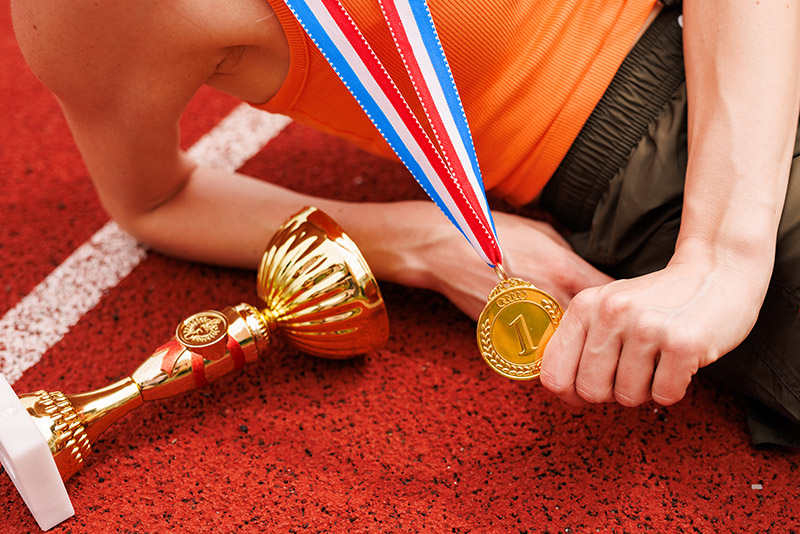
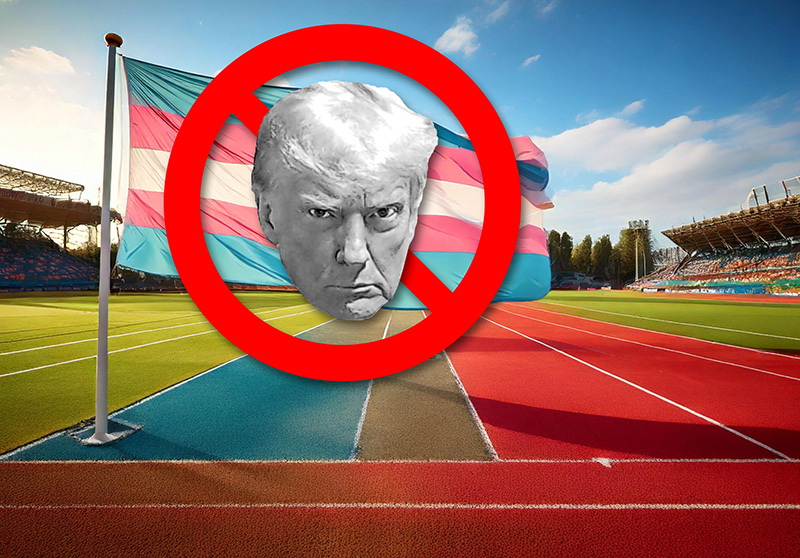
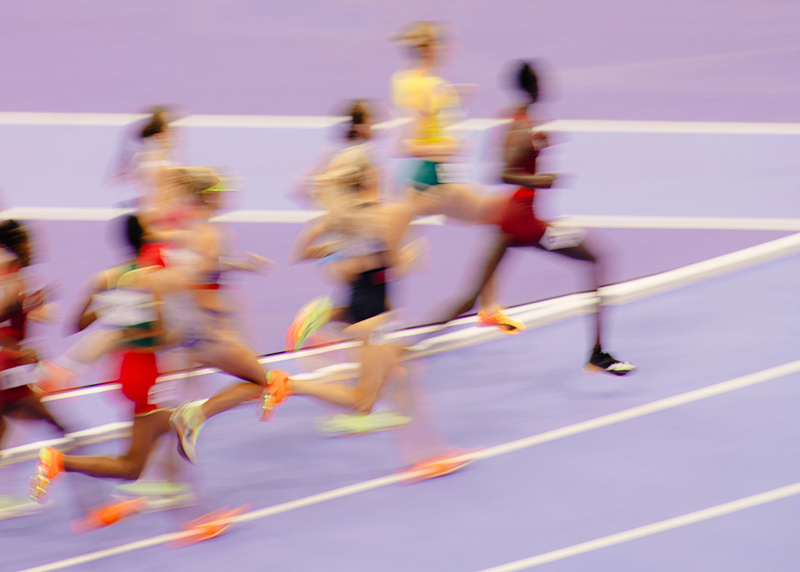















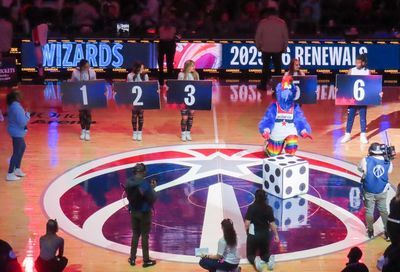
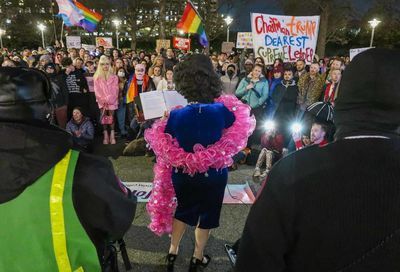
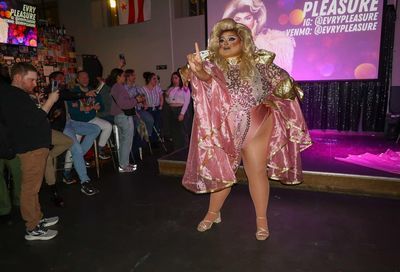
You must be logged in to post a comment.